Urban Currents: A Retrospective and Update
Urban Currents: A Retrospective and Update
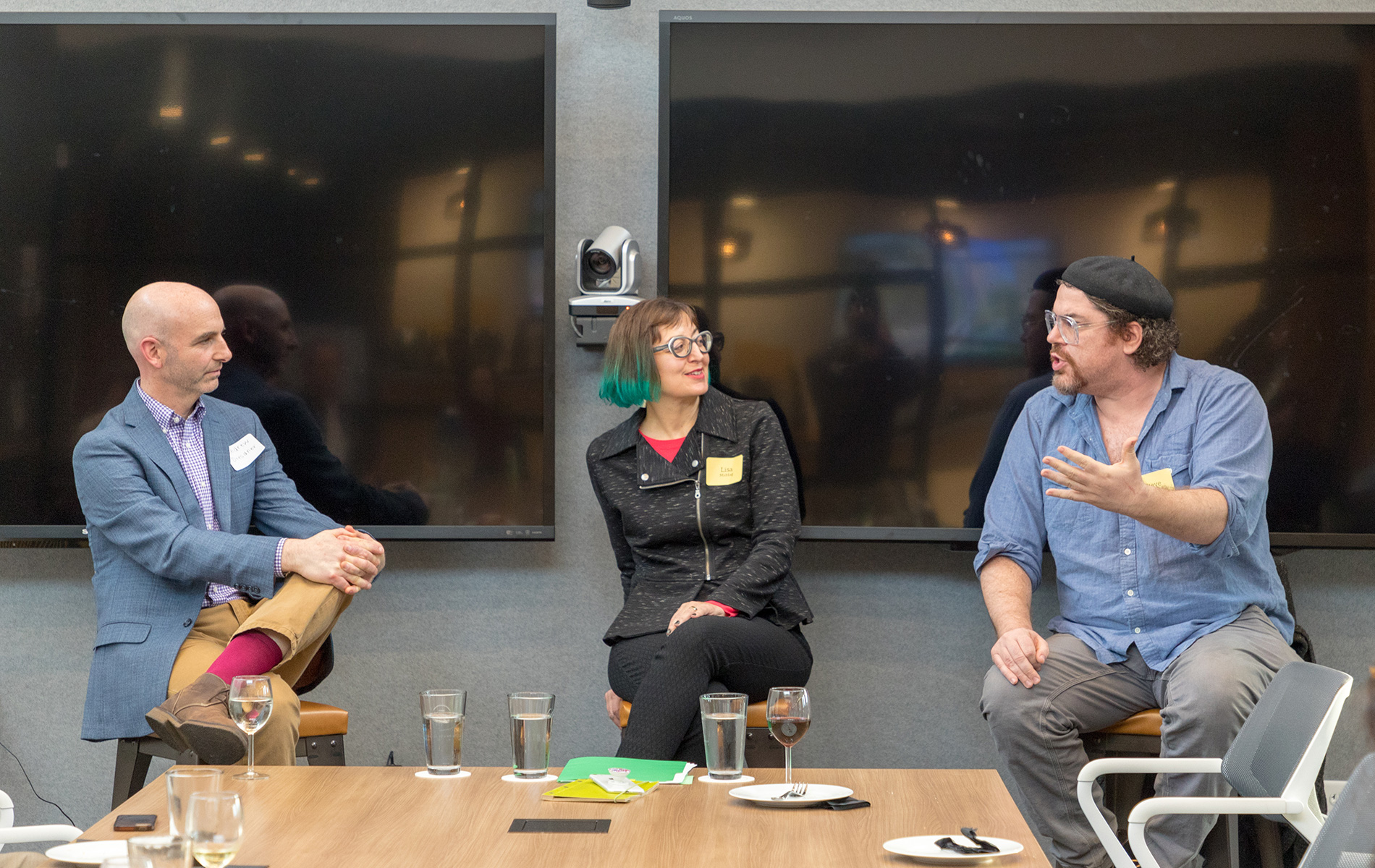
Recently, the COVID-19 pandemic and civil unrest in our communities and country have given us all pause. These events have also heightened the importance of community conversation. Hopefully, these conversations will help us heal and eventually result in a stronger and better city for more people.
Since 1999, Cuningham Group has held community conversations through a monthly lecture series called Urban Currents — an approachable platform to discuss important local issues. More than 20 years later, we have hosted 204 events, over 250 speakers and more than 5,000 participants.
Our topics are timely; the last Urban Currents event, held in February, was one of our largest. The topic was “Mapping Prejudice: The History of Housing Segregation in Minneapolis.” Sometimes our topics are prescient without even intending it: In March 2006, we invited Dr. Elizabeth McClure to present “Pandemic Influenza: What Do We Know, What Should We Do?”
The Early Years
Urban Currents was founded by our founder, John Cuningham, in 1999. John, together with Communications Consultant Susan Schaefer, intended the series as a gift back to the community. At that time, Cuningham Group was going through a growth spurt and an increasing amount of the firm’s work was coming from outside the Twin Cities. Being the local boy he was, John felt it important that the company maintain a footprint in the Twin Cities, regardless of where the work was coming from. And as a civic-minded person, John wanted Urban Currents (originally titled “Metro Matters” by Schaefer) to be a forum where the community could come together and learn about a wide array of public topics. If it was urban or current (preferably both), it flew.
The broad nature of Urban Currents was intentional. Sure, it may have been easier to host a design or architecture series, but John was a multi-disciplinarian and he preferred generalist knowledge over specialist expertise. In the first two years alone, we had topics ranging from religion and race, to philosophy and philanthropy.
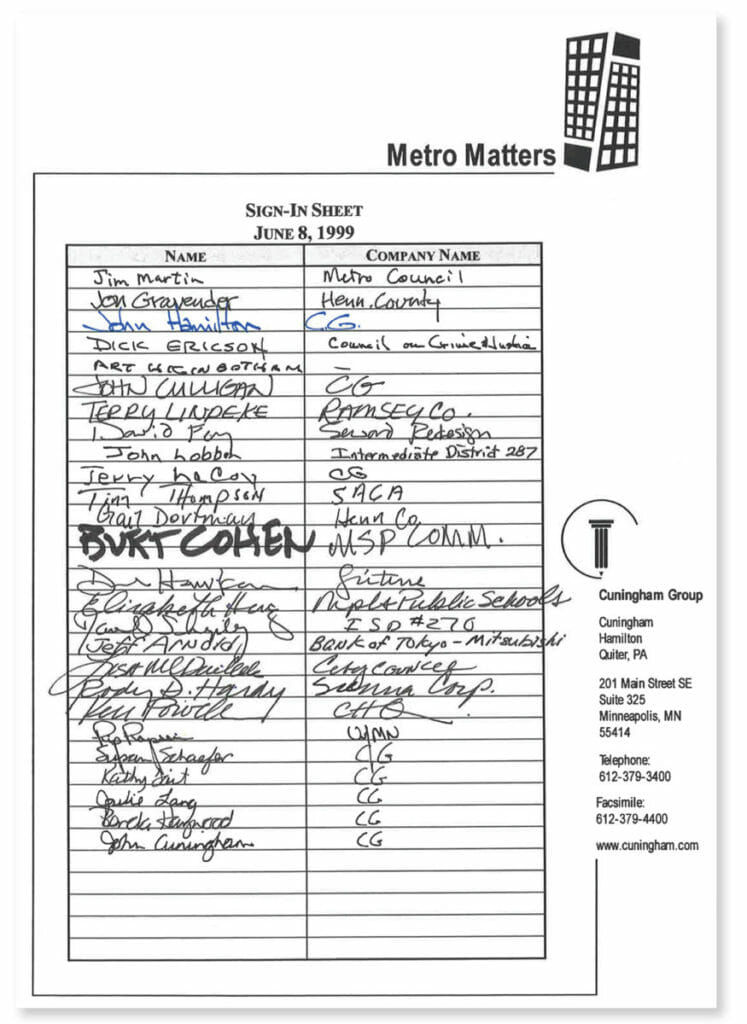
In those early years, John invited dozens of speakers of prominence. The roster was stacked with State Senators, CEOs, and Executive Directors. It was a who’s who of the Twin Cities. Urban Currents met in Cuningham Group’s board room monthly on early Tuesday mornings and attendance was capped at 25 because of the room size. But small was good. Intimacy was valued. Urban Currents was decidedly not about networking or broadcasting. It was about simply learning and discussing topics that were urban and current.
I had been a frequent attendee of the early Urban Currents simply because the idea of generalist knowledge appealed to me. (Plus, as a pretty young guy, when else would I get to be in a small room listening to what Ted Mondale or Bill George or Mae Schunk had to say about metropolitan politics, stents, or educational approaches?) And so, when he retired after 13 years, John graciously handed Urban Currents over to myself and a small group of staff.
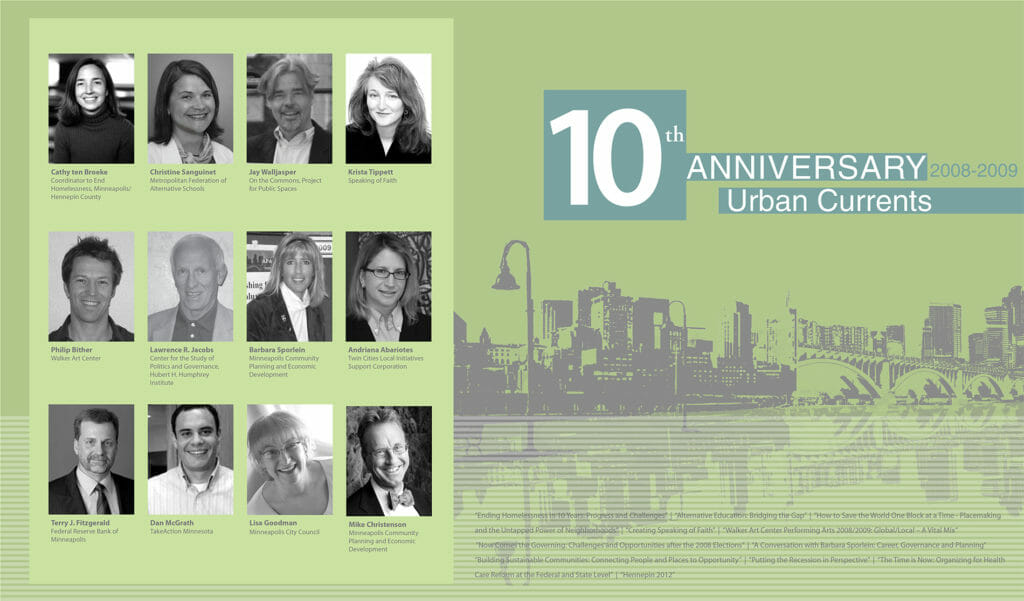
Expanding Reach and Focus
In 2016, I was pleased to take on Urban Currents’ programming. Since that time, the forum has changed, but it has not been transformed. We are still committed to the original idea of bringing the community in to discuss relevant civic issues. But since 2016, we have also introduced new formats, new topics, and new speakers — while remaining urban and current, of course.
In the early years, the format was effective and successful. It was also predictable. Invite a person of note and gravitas, give them the head of the table, ask them to speak for 20-30 minutes, and let the conversation go from there. But in recent years, instead of just one person of gravitas speaking from the head of a table, we have introduced different formats, including debates, panels, roundtables, and even fishbowl discussions.
We are also focusing more on ideas and less on resumes. We no longer seek State Senators, CEOs, and Executive Directors. Rather, we find people who are doing interesting things in civic life and, regardless of their age and professional title (or lack thereof), we invite them in. This approach has brought us diverse topics such as “The Geography of Prince,” “Bike Culture, More than Spandex,” and “Urban Storytelling.” Sometimes, we even develop the topics ourselves and then find the speakers to fit that topic. This approach brought us “Characteristics of the Perfect Mayor,” “The Minneapolis-Saint Paul Debate,” and “What Did We Learn from Hosting the Super Bowl… Was it Worth it?”
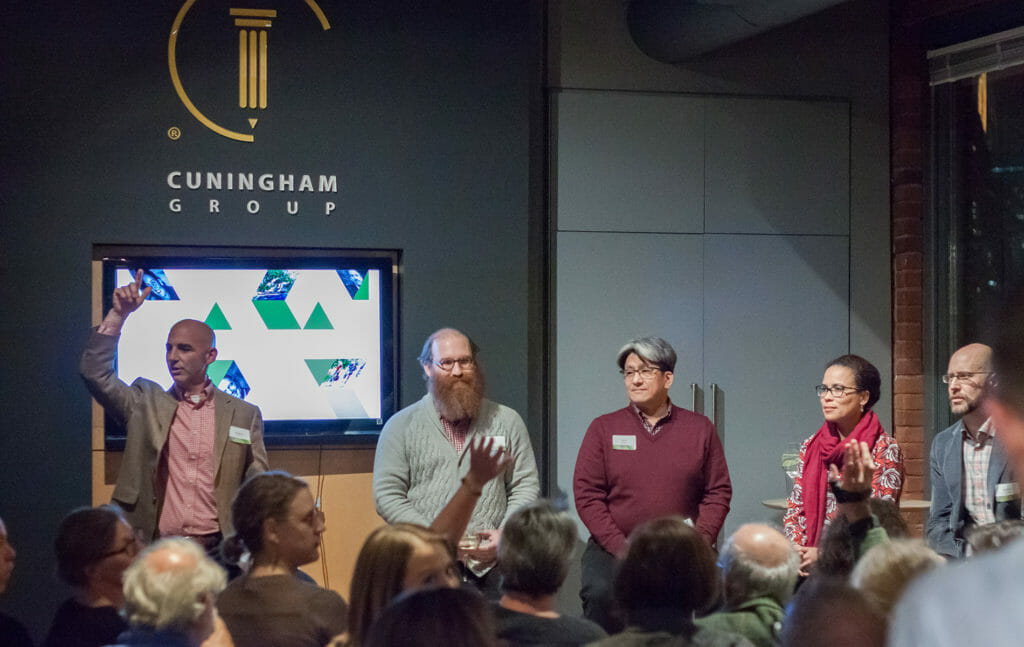
Addressing Growth Through Flexibility
Urban Currents has grown slightly in recent years, but that is mainly a result of the increased capacity provided by our 2018 office remodel. Though we have hosted several annual events for 100+ people, our goal has never been to turn it into a big event, party, or networking opportunity. We like to keep the size at about 35 people because we value the opportunity for all to be participants. If we are much larger than 35 in the room, “participants” become just “audience members.”
And, perhaps controversially, we moved Urban Currents off the nearly religious “second Tuesday of the month at 8 a.m.” schedule — the pattern John maintained for more than 15 years. After much discussion and some nervousness, we now rotate between morning to evening sessions, and from monthly to bi-monthly — or sometimes even every three months. The reason for breaking the pattern is twofold. First, in order to attract a wider group of participants, we had to recognize that evenings work better for some, especially the younger crowd for whom taking the morning off work is not easy. Second, we reduced the number of events because we prefer to have good content, not just a lot of content.
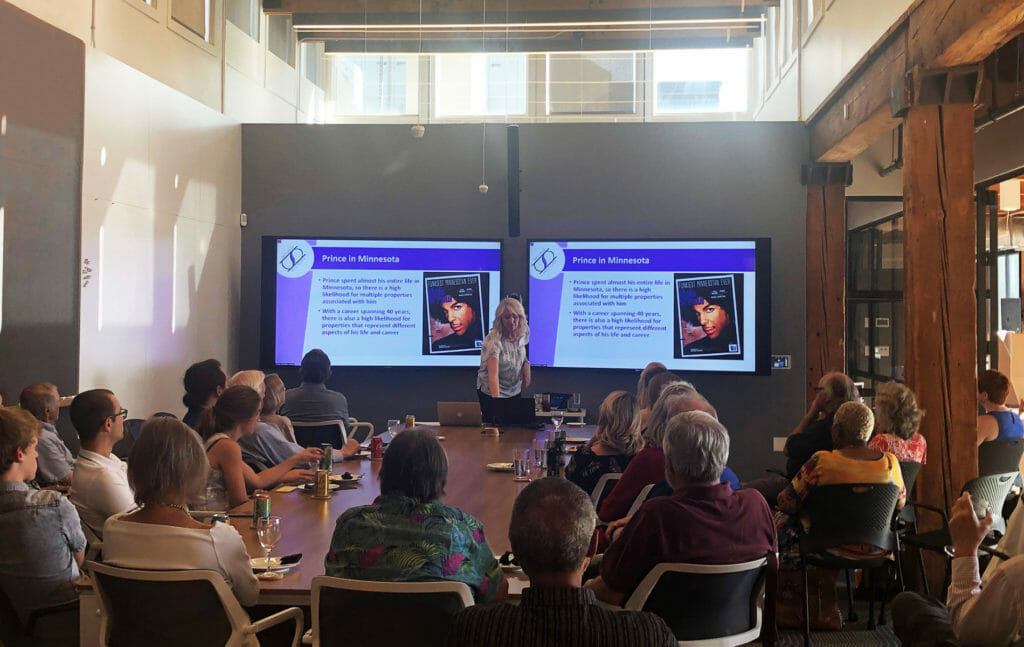
Urban Currents by the Numbers
During quarantine, a few of us put together the compendium of 20 years of Urban Currents speakers and topics into a database. Going through it sparked memories and thoughts about what is gained by being together and what is lost by being apart. We then took the data and developed a fun infographic that we welcome you to enjoy. (See the timeline at the beginning of this peice for reference).
With my newfound free time, I tried looking for the “red thread” that ties together all the data. After a few hours of dissection, I decided the only unifying theme, year in and year out, is that every session is “urban” and “current.” I wish I could have a better conclusion. But I don’t.
Ongoing Adaptation
Naturally, people have asked us about how we will continue Urban Currents given COVID-19 and social distancing rules. Our current approach is to simply wait it out. Though that might be a disappointment, our decision is rooted in the belief that the true value of Urban Currents is the face-to-face experience of learning and participating in a live setting. We know we can go virtual via webinar. But if there is one thing we’ve learned during “work from home,” it is that the virtual experience, while perfectly fine for some things, does not replace a certain type of human connection that occurs in-person. (Plus, to be honest, we just don’t think most people want to do yet another Zoom meeting, regardless of the topic and the speakers).
So for the moment, instead of trying to pull off an Urban Currents web series, we encourage you to use the time to read, do a puzzle, take a walk, give a friend a call. If you really do want to go online and satisfy your thirst for curiosity and local knowledge, there are many local artist or musicians (and restaurants) who welcome your support.
We are hoping this hiatus only lasts a few more months. Whenever this is over, we will resume. Of course, Urban Currents will probably look different for a time, and we are not 100 percent sure what that will mean. But one thing is certain: Urban Currents will return.
Perhaps we should invite Dr. Elizabeth McClure back for a follow-up presentation…